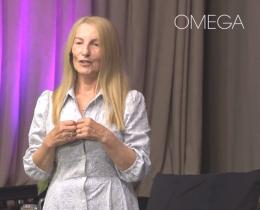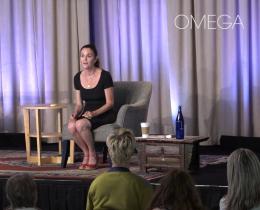If you look at your calendar on any given month, you will find a number of religious holidays. March has everything from the beginning of Lent (a Christian holiday) to Naw Ruz (a Baha’i holiday) and April has more than a dozen religious holidays. However, in the West, we think of the "holiday season” as, not so much a season, but the month of December. December anchors the year with the blockbuster holidays of Christmas and Hanukkah, along with Kwanzaa and Las Posadas. It is a time of cheer, excitement, and gatherings, both familial and communal. But if you're one of the growing number of nonbelievers, December is not your "holiday season” and joining in the festivities may feel forced, insincere, or even oppositional to your belief system (or lack thereof). The choice often feels rather absolute; either conform or exile.
Americans who are unaffiliated with any faith tradition are the fastest growing religious group in the country, according to a 2011 CNN report. We have a large contingent that have already faced the reality of being a nonparticipant in a collectively celebratory culture. Some have decontextualized the season and its signifiers as a way to celebrate life and the closing of another year. Kathryn Plimpton of Colorado says, “The spirit of Christmas doesn't have to be tied to religion....At a time of year that religious folks of all types are celebrating their specific miracles, is it really so important to fight over who gets branding rights?”
Much of the holiday season, particularly Christmas, has become a commercial venture endorsing consumerism over belief. It is not that Christmas, and the like, were invented by big box stores, but these engines of consumerism do their best to exploit the holidays. With such exploitation, many people, not just atheists and agnostics, tend to eschew anything having to do with holidays, or at least do their best to find a new creative ownership of the season. In 2007, while accepting the Outstanding Lifetime Achievement Award in Cultural Humanism at Harvard University, Salmon Rushdie, who is no stranger to the conflicts that arise from religious intolerance, posited the idea that we need an "Atheistmas" that avoids unnecessary dogma and rigid rituals. Some do this by digging back into history, and heritage, to celebrate the winter solstice, which has links to many preChristian traditions including the Roman observance of Saturnalia. Roy Speckhardt, executive director of the American Humanist Association, has long promoted a December 23rd holiday billed as Humanlight, a holiday that promotes a secular vision of reason, compassion, hope, and humanity above all. Still many others steer clear of the prescribed structure of a holiday season altogether, and instead make it a time to be charitable within their community and find time to celebrate nature and the transition of seasons.
But, what if you're a nonbeliever yet find the draw of the holidays to be irresistible? Many nonbelievers, as well as adherents to other faiths such as followers of Judaism and Hinduism, find ways of participating in the Christmas tradition while deemphasizing the particular religious doctrine that is attached to it. Elisabeth Cornwell, executive director of the U.S. branch of the Richard Dawkins Foundation (an organization dedicated to spreading the message of scientific reason over religious belief) is a nonbeliever, but also an enthusiastic participant in the Christmas tradition. Cornwell wrote of her perspective on the matter in the Washington Post, saying, “Celebration is not owned by any one culture and especially not by any one religion. It is part of our humanity.”
To be sure, the act of coming together as a family, and/or community, feasting, enjoying music, and shared cultural values is hardly specific to any one culture or faith. It runs deep through human history and many, if not most, cultures. We have an intrinsic need to mark time and make connections with one another, particularly around times of change. It is a way of bringing light and warmth to a season that could otherwise be barren and arduous. While particular holidays, as well as particular beliefs, may not be shared across the board, our humanity drives us to connect through celebration and a shared desire for better days to come.



